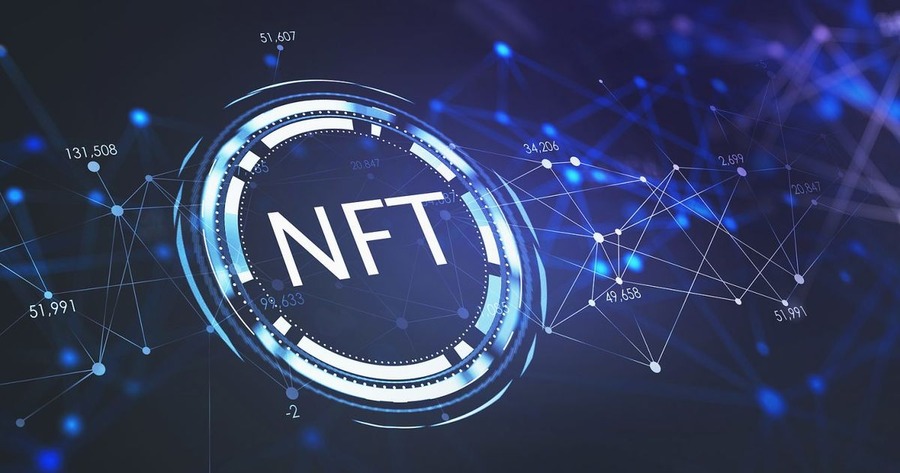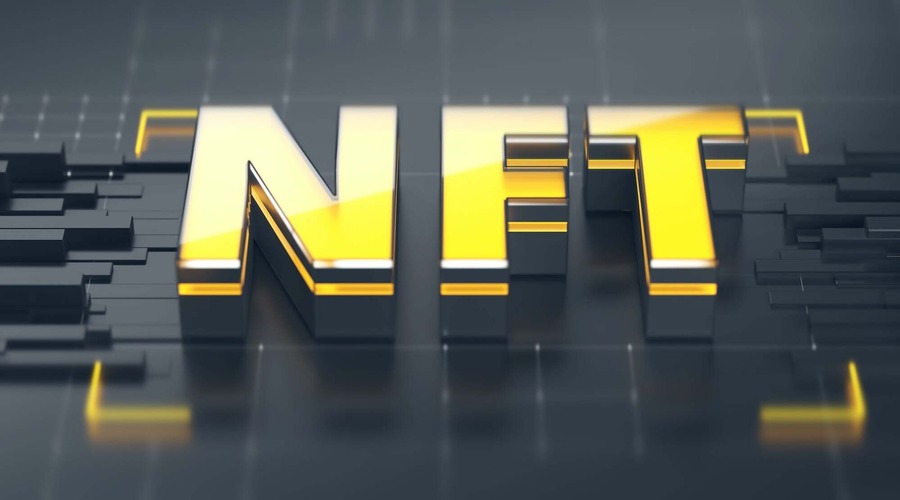The use of Non-Fungible Tokens (NFTs) has gained widespread attention in recent years due to their uniqueness and ownership validation features. The potential for NFTs to be used in democratic systems is an exciting prospect. They could provide a more secure and transparent way to conduct elections and allow for greater citizen participation in decision-making. This article explores the potential of NFTs in democracy, including their benefits, challenges, and future implications.
What are NFTs?
Non-Fungible Tokens (NFTs) are a type of cryptocurrency that are unique and non-interchangeable, unlike traditional cryptocurrencies like Bitcoin. They are used to represent ownership of digital assets such as art, music, videos, and even tweets. NFTs use blockchain technology to verify ownership and ensure the authenticity and uniqueness of the digital asset.
The Benefits of NFTs in Democracy
The use of NFTs in democratic systems could bring several benefits, including:
Transparency
NFTs could provide greater transparency in democratic systems, particularly in elections. The use of blockchain technology ensures that each vote is recorded and can be easily audited, making it difficult to tamper with the results. This could lead to greater trust in the electoral process, reducing the risk of election fraud.
Accessibility
NFTs could make the democratic process more accessible to citizens who are unable to attend polling stations physically. For example, citizens could vote online using NFTs, which would allow them to participate in the democratic process from anywhere in the world. This could increase voter turnout and promote greater citizen engagement in decision-making.
Security
NFTs could provide a more secure way to conduct elections, reducing the risk of cyber attacks and other forms of interference. The use of blockchain technology ensures that each vote is recorded and verified, making it nearly impossible to manipulate the results.
Challenges and Limitations
Despite the potential benefits, there are also several challenges and limitations to the use of NFTs in democratic systems, including:
Cost
The cost of implementing NFTs in democratic systems could be significant, particularly for developing countries with limited resources. This could create a digital divide, where citizens in wealthy countries have greater access to digital democracy than those in poorer countries.
Accessibility for marginalized communities
There are also concerns that the use of NFTs could exclude marginalized communities who do not have access to digital devices or the internet. This could exacerbate existing inequalities and limit citizen participation in decision-making.
Cybersecurity risks
While NFTs offer greater security than traditional voting methods, they are not immune to cyber attacks. Hackers could target the blockchain technology used to verify NFTs, potentially altering the election results or stealing citizens’ personal data.
Potential Use Cases for NFTs in Democracy
In addition to elections, there are several other potential use cases for NFTs in democratic systems. One such use case is for citizen participation in decision-making. For example, governments could use NFTs to validate citizens’ opinions on various issues. This could be done by creating NFTs that represent a specific issue, such as a proposed policy or project, and allowing citizens to vote on it using their NFTs.
Another potential use case for NFTs in democratic systems is for fundraising. Political parties and candidates could create NFTs to represent donations, allowing for greater transparency in campaign financing. NFTs could also be used to represent government bonds or other forms of debt, providing a more secure and transparent way to manage government finances.
The Role of Blockchain Technology in NFTs and Democracy

Blockchain technology plays a crucial role in the use of NFTs in democratic systems. It ensures that each NFT is unique and cannot be duplicated, providing a secure and transparent way to verify ownership. Additionally, blockchain technology allows for the creation of smart contracts, which could be used to automate various aspects of the democratic process.
For example, smart contracts could be used to automatically validate and count votes, reducing the risk of human error and fraud. They could also be used to enforce term limits for elected officials or to automate the distribution of government funds. The possibilities are endless, and as blockchain technology continues to develop, so too will the potential for NFTs in democratic systems.
The Role of Decentralization in NFTs and Democracy
Decentralization is a key feature of blockchain technology and NFTs. It refers to the distribution of power and control among a network of users rather than a centralized authority. Decentralization is important in NFTs and democratic systems because it provides greater security and transparency.
In a decentralized system, there is no single point of failure, making it more difficult for hackers to manipulate the system. Additionally, decentralization allows for greater transparency, as each user can access the same information and verify transactions on the blockchain.
Decentralization could also have important implications for the future of democratic systems. By distributing power and control among citizens, rather than a centralized authority, decentralization could lead to greater citizen participation in decision-making and a more equitable distribution of resources.
The Potential Drawbacks of NFTs in Democracy

While the potential benefits of NFTs in democratic systems are numerous, there are also potential drawbacks that must be considered. One such drawback is the potential for NFTs to exacerbate existing inequalities.
For example, the cost of implementing NFTs in democratic systems could create a digital divide, where citizens in wealthy countries have greater access to digital democracy than those in poorer countries. Additionally, the use of NFTs could exclude marginalized communities who do not have access to digital devices or the internet.
Another potential drawback of NFTs in democratic systems is the risk of cyber attacks. While blockchain technology provides greater security than traditional voting methods, it is not immune to cyber attacks. Hackers could target the blockchain technology used to verify NFTs, potentially altering the election results or stealing citizens’ personal data.
The Role of Education in the Implementation of NFTs in Democracy
The implementation of NFTs in democratic systems requires a certain level of technical expertise and understanding of blockchain technology. This presents a challenge for governments and organizations without the knowledge or resources to implement NFTs effectively.
Education and training will be crucial in the implementation of NFTs in democratic systems. This could include training for government officials and election administrators on how to use NFTs to conduct elections, as well as education for citizens on how to participate in the democratic process using NFTs.
Additionally, education and training will be important in addressing the potential drawbacks of NFTs in democratic systems, such as the digital divide and the risk of cyber attacks. By educating citizens and officials on the potential benefits and challenges of NFTs, governments and organizations can ensure that they are implemented in a way that is equitable and secure.
The Importance of Privacy in NFTs and Democracy
Privacy is a crucial aspect of democratic systems, as it allows citizens to participate in decision-making without fear of retaliation or discrimination. The use of NFTs in democratic systems raises concerns about privacy, as each NFT represents a unique identifier that can be linked to a specific individual.
To ensure privacy in NFTs and democratic systems, governments and organizations must implement strict data protection measures. This could include anonymizing NFTs to prevent them from being linked to specific individuals, as well as using secure encryption methods to protect citizens’ personal data.
The Potential for Collaboration in the Use of NFTs in Democracy
The implementation of NFTs in democratic systems presents an opportunity for collaboration between governments, organizations, and citizens. By working together, stakeholders can ensure that NFTs are implemented in a way that is inclusive, equitable, and secure.
For example, governments could collaborate with blockchain developers to create NFT-based voting systems that are accessible to citizens with disabilities. Organizations could collaborate with citizens to create NFTs that represent their opinions and values, providing a more direct way for citizens to participate in decision-making.
The Future of NFTs and Democracy
The future of NFTs in democratic systems is still uncertain, but the potential is undeniable. As blockchain technology continues to develop, NFTs could provide a more secure, transparent, and accessible way to conduct elections and allow citizens to participate in decision-making.
However, the challenges and limitations of NFTs in democratic systems must also be addressed to ensure that they do not exacerbate existing inequalities or create new ones. As governments and organizations around the world continue to explore the potential of NFTs in democratic systems, it will be interesting to see how they are implemented and what impact they have on the future of democracy.
Conclusion
The potential for NFTs in democratic systems is an exciting prospect, offering greater transparency, accessibility, and security. However, there are also several challenges and limitations that must be addressed to ensure that NFTs are implemented in a way that is inclusive and equitable. It remains to be seen whether NFTs will become a standard feature of democratic systems, but their potential cannot be ignored.
FAQs
- Are NFTs secure?
- NFTs use blockchain technology to ensure their authenticity and uniqueness, making them more secure than traditional voting.
- How can NFTs make the democratic process more accessible?
- NFTs can allow citizens to vote from anywhere in the world using digital devices, increasing accessibility for those who are unable to attend polling stations physically.
- What are the potential implications of using NFTs in democratic systems?
- The use of NFTs could lead to greater transparency, accessibility, and security in democratic systems. However, it could also create new inequalities and exacerbate existing ones if not implemented equitably.
- What are some of the challenges and limitations to using NFTs in democratic systems?
- The cost of implementation, accessibility for marginalized communities, and cybersecurity risks are some of the challenges and limitations to using NFTs in democratic systems.
- Will NFTs become a standard feature of democratic systems in the future?
- It is unclear whether NFTs will become a standard feature of democratic systems, as their implementation depends on a variety of factors, including cost, accessibility, and security concerns.





